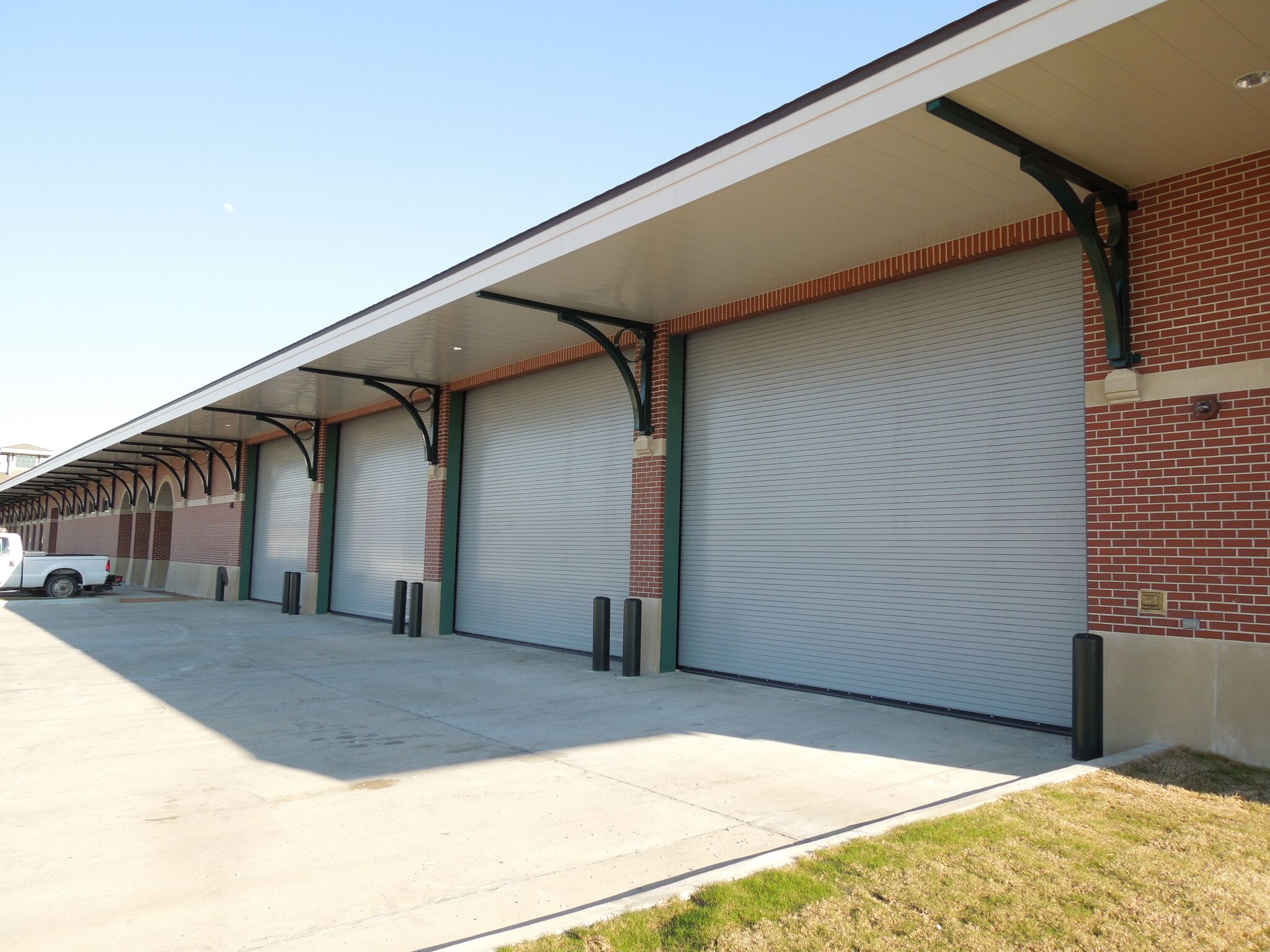Menu
open menu
close menu
- Products
- Self-Storage
- Commercial/Industrial
- Nokē™ Smart Entry
- Resources
- Events
- Investors
- About Us

We all know moving building components such as doors and windows are the primary culprit for transmitting hot and cold temperatures into and out of your building. That's why many climate controlled buildings take advantage of insulated doors to help regulate temperatures and save money. Commercial and industrial buildings are no different! That's why we're diving into everything you need to know about insulated rolling steel doors.
In this blog, we'll answer the following questions:
What is Polystyrene Insulation?
Polystyrene insulation is a pre-formed pre-cut insulation, also known as laid-in-place (L-I-P) insulation, or more commonly known as Styrofoam. This insulation is manually slid into the void between slats and enclosed in the center of a rolling steel door.
What is Polyurethane Insulation?
Polyurethane insulation is a high-performance insulation material commonly found in commercial and industrial products such as rolling steel doors. This insulation is also known as foam-in-place (F-I-P) insulation because it is sprayed into the slat of a rolling steel door as a liquid, where it then expands to fill the entire void. This eliminates any air pockets and creates a greater environmental separation between the inside and outside of the building.
.png?width=1600&name=Blog_Graphic_Insulation%20(1).png)
When measuring thermal efficiency in rolling steel doors, there are 3 terms of measurement that you'll need to know; R-value, U-factor and STC rating.
R-Value | R-value is a measurement of a single material's ability to resist the conduction of heat flow. The higher the R-value, the more efficient the insulation is.
U-Factor | In contrast to R-value, U-factor is a measurement of how much heat energy is lost or gained from an entire assembly. Rather than measuring the insulation itself, U-factor measures how much heat energy is lost or gained from the insulation, as well as the steel slats that surround it in a rolling steel door. This is considered a more accurate and reliable measurement for the thermal performance an end user will actually experience. The lower the U-factor, the more efficient the insulation is.
STC Rating | Sound Transmission Class (STC) rating indicates how well a building partition attenuates air born sounds. The better the insulation, the higher the STC rating will be. Having a high STC rating is beneficial for large commercial and industrial buildings such as warehouses and freight terminals that are generally very loud.
According to DASMA, the garage door industry has been wrestling with providing accurate, useful thermal performance ratings for many years. After much research, examination and investigation, the industry's chosen to move to U-factors as a means of rating the thermal performance of rolling steel doors. For more information, DASMA has published an article, "Why U?", that dives into why the industry's replacing R-values with U-factors.
Polyurethane insulation delivers higher thermal efficiency than polystyrene insulation because of it's foam-in-place design that fills voids and eliminates air pockets inside of the rolling steel door slat. If you have a climate controlled commercial or industrial building and are in need of rolling steel doors to help regulate temperature and save money, contact us today so we can help you select the best product for your closure.
These Stories on Commercial Rolling Steel & Sheet Doors
(866) 562-2580
(770) 562-2850
REQUEST A QUOTE